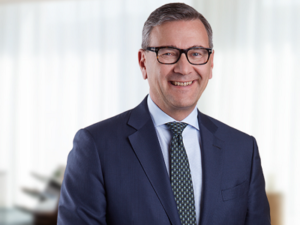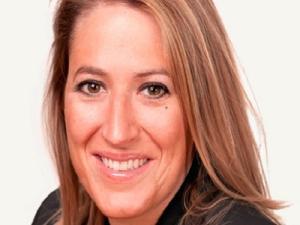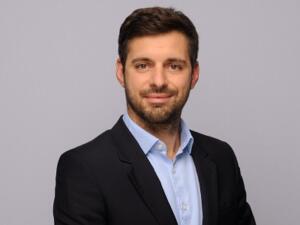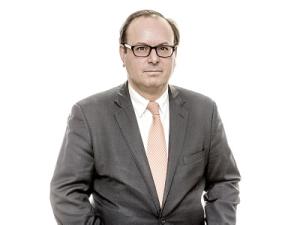Advocate General points the way to interpretation of SPC regulation
For over a year, the patent market has awaited the European Court of Justice's decision on the interpretation of the SPC regulation. An opinion from the Advocate General published last week gives hope to generic drug companies.
14 June 2024 by Konstanze Richter
In 2021 and 2022, both the Finland Market Court and the Supreme Court of Ireland referred questions to the CJEU concerning the scope of the supplementary protection certificate regulation with regard to combination drug products. The courts are mainly seeking clarification regarding the interpretation of Articles 3(a) and 3(c).
The CJEU’s Advocate General, Nicholas Emiliou, has now issued an opinion on the referrals.
Different drugs, same issues
The Finnish case concerns MSD’s diabetes drug Janumet based on the combination of sitagliptin and metformin (case ID: C-119/22). The Irish case concerns MSD’s cholesterol drug Inegy, based on the combination of ezetimibe and simvastatin (case ID: C-149/22). SPCs protect the combination of active ingredients for both products. Teva has attacked Janumet, while Clonmel has attacked Inegy. Since both cases concern very similar questions, the court has combined the referrals.
Mixed law firm Roschier represents long term client MSD in Finland. Partner Rainer Hilli, head of the firm’s IP practice, leads the case at the Market Court. Ben Rapinoja, partner at full-service firm Borenius, leads the case for Teva.
- Ben Rapinoja
- Rainer Hilli
In Ireland, the Dublin-based firm Whitney Moore represents MSD. However, Aoife Murphy who originally led the case together with Robin Hayes moved to DLA in spring last year. On the opposing side, law firm William Fry represents Clonmel, led by partner Laura Scott.
The Finnish and the Irish courts have asked the CJEU to clarify, if and to what extent, an SPC may be granted for a combination of active ingredients used in a product where a previous SPC has already been granted for one of those ingredients. Even though these questions have been the subject of CJEU rulings before, national patent courts still struggle with this issue.
Hope for generics
In his recently published opinion, the Advocate General, Nicholas Emiliou, suggested the following interpretation of the SPC regulation:
(1) Article 3(a) of Regulation (EC) No 469/2009 must be interpreted as meaning that to be regarded as ‘protected by a basic patent’ within the meaning of that provision, a ‘product’ must not only be expressly mentioned or at least ‘specifically identifiable’ in the claims but also fall under the invention which is the subject matter of that patent.
(2) Article 3(c) of Regulation No 469/2009 must be interpreted as meaning that it does not preclude the grant of a supplementary protection certificate (SPC) for a combination of active ingredients where a previous SPC had been granted for one of those ingredients. The concepts of ‘core inventive advance’ and ‘subject matter of the invention’ are irrelevant for the purposes of the assessment of the condition laid down in that provision.
Provided that the CJEU follows the opinion of the Advocate General, this interpretation of Article 3(a) would be good news for generics manufacturers. They had argued that, although in both cases the corresponding active ingredients are recited in the claims of the respective basic patents, a combination of the two is not protected by the basic patent within the meaning of this provision.
In his opinion the Advocate General now states that the product — in this case the combination of the active ingredients — must also fall under the invention of the patent.
The Advocate General also states that an existing SPC for one of the active ingredients need not be an obstacle to granting the SPC for the combination.
Pan-European battle
The CJEU’s final decision will also have an impact on pending proceedings. In both cases MSD has been battling against different generic drug companies in parallel proceedings across Europe.
In the infringement proceedings over Inegy in Germany, the Regional Court Düsseldorf withdrew a previously granted preliminary injunction. It reasoned that because an expired SPC for the active substance ezitimibe already existed, a further SPC for the combination was unjustifiable. The Higher Regional Court followed the verdict of the first instance. The second-instance court’s presiding judge at the time was Thomas Kühnen. He pointed out that the CJEU had not yet conclusively clarified in its previous case law under which conditions an SPC also applies to a combination of active substances. The German Federal Patent Court declared MSD’s SPCs for Inegy and Janumet null and void. In the Janumet case, there is an appeal against the nullity decision at the Federal Court of Justice pending the CJEU judgment.
All patent firms involved in the German cases maintain long-standing relationships with their clients, having advised them since the disputes began. MSD relies on a team around the two Hogan Lovells partners Miriam Gundt and Andreas von Falck. They lead the firm’s strong life sciences team and have a good reputation in litigation for pharma originators. Patent attorney Monica Heinemann from Abitz & Partner, who also conducted the parallel nullity proceedings together with Hogan Lovells, provided technical assistance.
- Miriam Gundt
- Andreas von Falck
Bird & Bird regularly litigates for core client Teva and its subsidiaries Ratiopharm and AbZ Pharma. Anne Wolters-Höhne represented Ratiopharm and subsidiary AbZ in the German proceedings. Düsseldorf partner Oliver Jüngst advised Stada and its subsidiary Aliud. However, Wolters-Höhne left Bird & Bird and — after a two year break — joined Allen & Overy, now A&O Shearman. Ratiopharm relied on a mixed team from the law firm with Munich-based Bird & Bird patent attorney Marie-Theres Schmid, while AbZ Pharma relied on the technical expertise of patent attorney Alexander Wittkopp from Hamm & Wittkopp alongside lawyer Jüngst.
- Oliver Jüngst
- Jan Rektorschek
- Christoph de Coster
Mylan (now Viatris) and 1APharma turned to Taylor Wessing for representation. Munich partners Jan Rektorschek and Christoph de Coster frequently advise generic drug companies in extensive disputes with pharma originators. They cooperated with Bernd Aechter from Ter Meer Steinmeister & Partner for Mylan and with patent attorney Derk Vos from Maiwald for 1APharma.
French cases suspended
In France MSD is going head-to-head with Teva and Biogaran over Janumet. Initially, the Paris Court of Appeal found the disputed SPC invalid based on Articles 3(a) and 3(c). The court interpreted the patent as containing only one invention, disregarding the simvastatin combination as a separate combination covered by the same patent.
However, MSD appealed to the Supreme Court (Cour de Cassation) on the interpretation of Article 3(c). The highest French instance suspended the case on the interpretation of Articles 3(a) and 3(c), pending the ruling by the CJEU.
From the outset, all parties relied on their core advisors, with MSD turning to Allen & Overy (now A&O Shearman). Partners Laëtitia Bénard and Charles Tuffreau are also representing the originator in a dispute over Inegy.
- Laëtitia Bérnard
- Charles Tuffreau
Biogaran instructed its go-to law firm Casalonga. Litigator Marianne Gabriel has an impressive track record representing the French generic drug company. August Debouzy partner François Pochart has also represented Teva from the beginning.
- Marianne Gabriel
- François Pochart
- Denis Schertenleib
In the battle over Inegy, however, the Paris Court of Appeal recently upheld a preliminary injunction issued by the first instance. While A&O Shearman again represented MSD, generic drug company Viatris (formerly Mylan) relied on trusted advisor Denis Schertenleib of Schertenleib Avocats.
The patent community expects the CJEU’s decision to clarify its own previous case law. Experts thus hope it will lead to harmonisation in the approach of patent offices across Europe regarding under which conditions parties can obtain second SPCs. In most cases, the CJEU follows the Advocate General’s guidelines.











